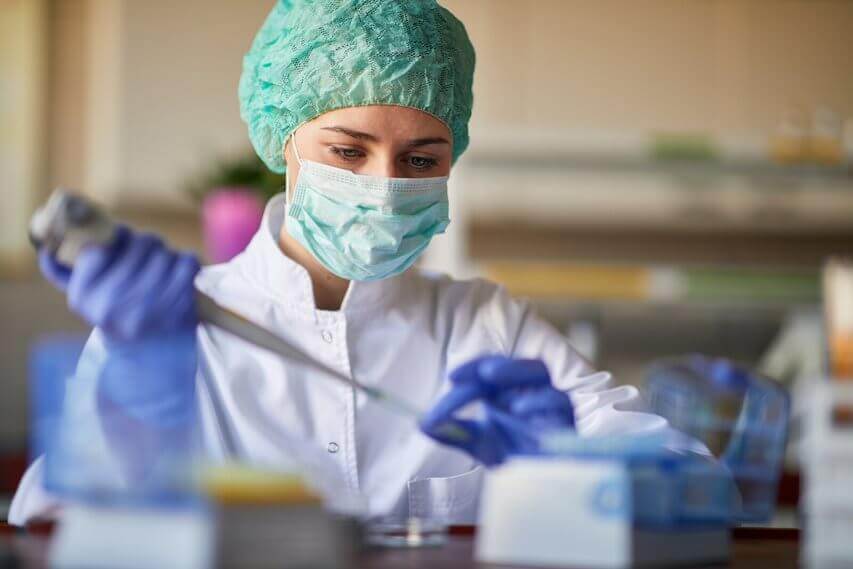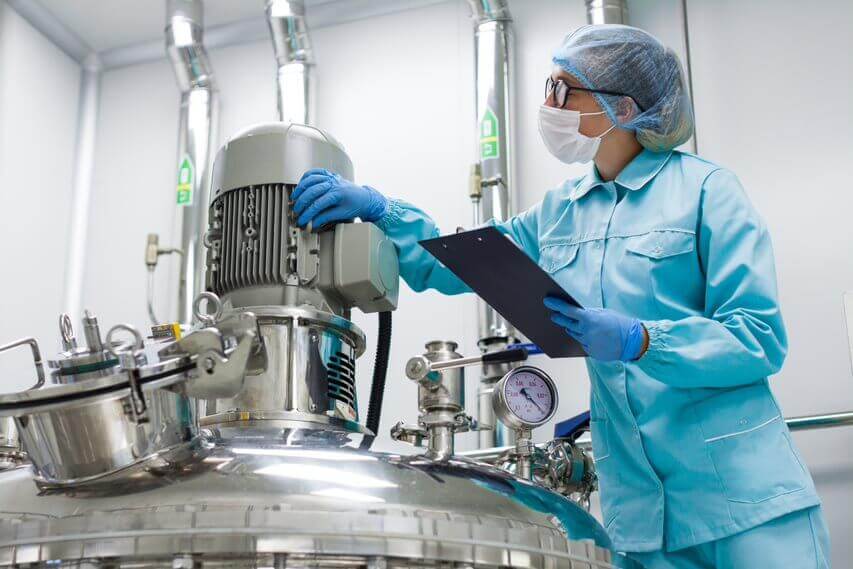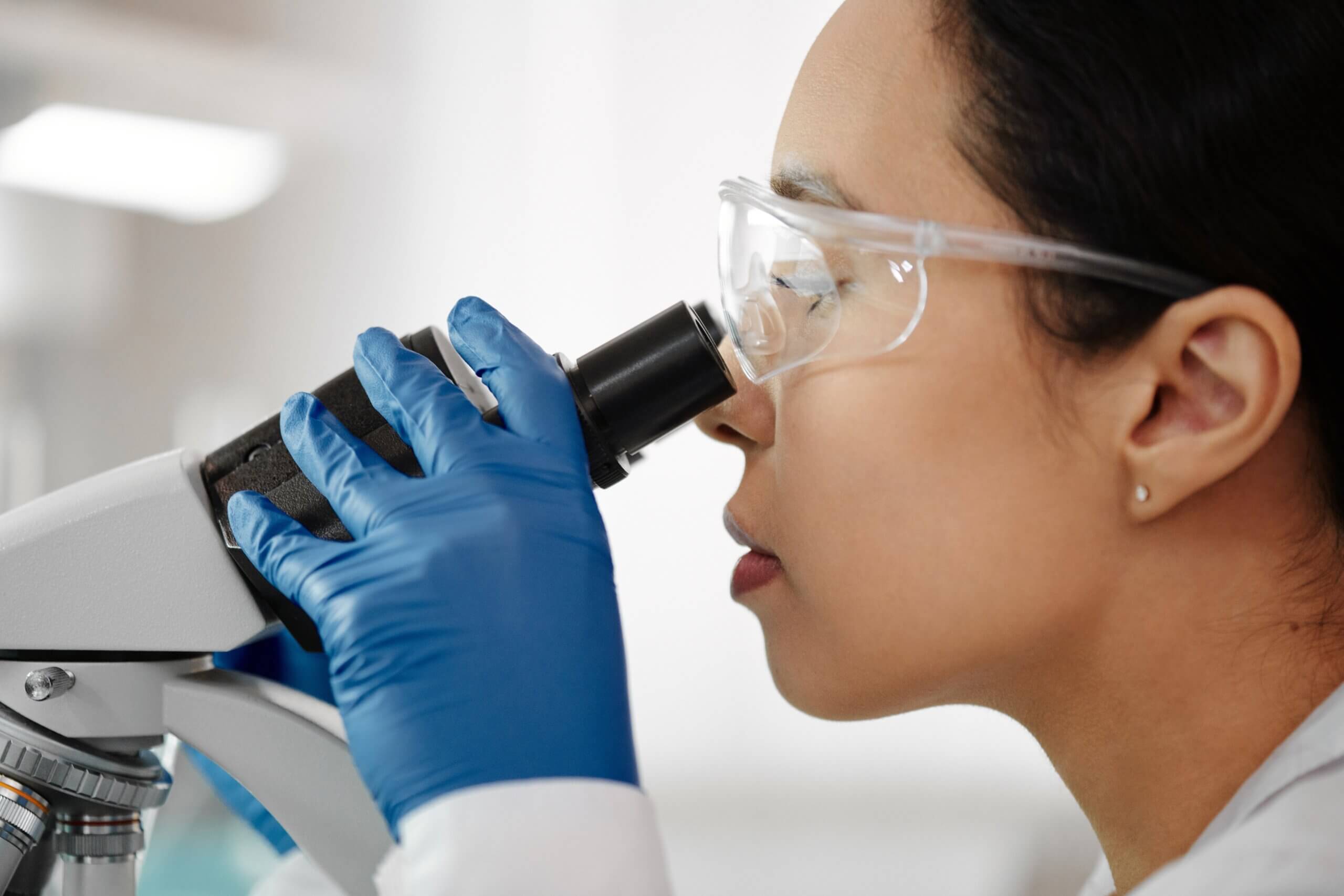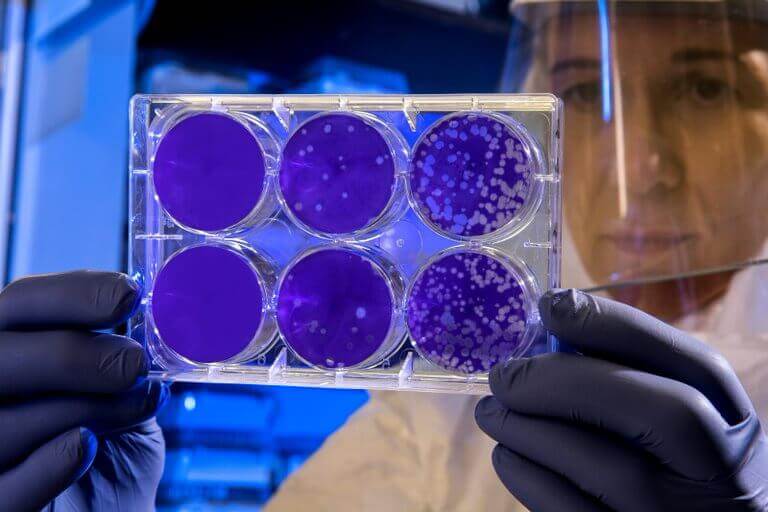Under the Microscope: the Evolution of the Netherlands’ Biotech Ecosystem
With a stable regulatory environment and abundant opportunities for collaboration, the Netherlands developed the formula for biotech success
The Netherlands has long been a leading location for Life Sciences & Health operations, yet the COVID-19 pandemic has propelled the biopharmaceutical sector into the global spotlight. Our world is continually striving to find the next greatest health advancement, expediting vaccine trials and searching for a cure for cancer. We know that health and safety are essential for securing our future, but how do we get there? The answer is biotech.
A connected biotech ecosystem
Innovation in biotech is stimulated in the Netherlands as companies are working around the clock, generating novel solutions that contribute to a healthier world – and it shows. In fact, the Netherlands ranks No. 6 worldwide for biotech patents. The Netherlands is home to one of the world’s most concentrated Life Sciences & Health communities, featuring more than 3,100 innovative R&D life sciences companies and 420 biopharmaceutical companies. There are also 26 campuses, 8 University Medical Centers, and 12 universities engaged in life sciences research. This high density of networked research centers in a relatively small geographical area makes the Netherlands a veritable hotbed of innovation.
Biotech leaders cite many reasons for choosing the Netherlands as their preferred location in Europe. Not only is Holland home to the European Medicines Agency (EMA), but it is centrally located in Europe, with great access to partners and customers. The Dutch approach to research and innovation, combined with excellent business infrastructure and a highly educated, dynamic workforce, makes the Netherlands an ideal location for biotech business expansion and acceleration.
A healthy dose of collaboration in biotech and biopharma
If the COVID-19 pandemic taught us anything, it is that breakthroughs seldom emerge when people work in silos. The inherent collaborative nature of the Dutch helps nurture public-private partnerships and an innovative life sciences ecosystem. An innate willingness to cooperate and share knowledge for the greater good will get us through this crisis, as the following examples illustrate:
- HALIX Signs Agreement With AstraZeneca For Commercial Manufacture Of COVID-19 Vaccine. Under the agreement, HALIX will provide commercial manufacturing of drug substance at its state-of-the-art cGMP facility at the Leiden Bio Science Park in the Netherlands.
- CureVac and Wacker Sign Contract for Manufacturing of Covid-19 Vaccine Candidate. Manufacturing at Wacker’s biotech site in Amsterdam is scheduled to start in the first half of 2021
- BioConnection announces that it is collaborating with AdaptVac for the Drug Product manufacture of their COVID-19 vaccine in its state-of-the-art-GMP manufacturing facility in the Netherlands.
And not only in times of crisis, we connect. Within the Netherlands, Health~Holland is a key guiding body for Life Sciences & Health collaboration. A prime example is U.S.-based Lilly partnering with Dutch biotech company Merus NV to research and develop up to three early experimental cancer drugs, strengthening the ties between the U.S. and Dutch Life Sciences & Health ecosystem. When questioned about the Dutch Life Sciences & Health ecosystem, Joep Rijnierse, Medical Director at Amgen the Netherlands, asserts that aspects such as close collaboration and the ability to have good discussions with the regulatory authorities in a very open manner are unique to the Netherlands. ‘We are open to innovation and to trying new things,’ states Rijnierse. The collaborative Life Sciences & Health ecosystem in the Netherlands provides a fertile environment for biotech companies in which to flourish. Not only that, it distinguishes itself from competitors by providing the tools to help them grow.
Where biopharmaceutical businesses blossom
Pharmaceutical companies are currently investing billions of euros in the production of medicines in the Netherlands, and this number only continues to grow. The country has welcomed a wave of investments from big pharma companies in recent years. Merck & Co, the largest pharmaceutical company in the Netherlands and parent company of MSD, is bolstering its Dutch presence by expanding its MSD Netherlands facilities in Oss, Haarlem, Boxmeer, and De Bilt. The Oss facility will help meet the growing demand for cancer treatments worldwide.
And that’s not all that’s happening in this Dutch city. With its innovative power and rapidly developing scientific insights, Organon & Co, an MSD spinoff, is poised to become a global leader in women’s health. Organon’s additional focus areas include oncology, inflammatory diseases, and the development of new medicines.
Meanwhile, Alnylam Pharmaceuticals opened a state-of-the-art biotech facility in the Zuidas district of Amsterdam. The highly skilled talent pool, infrastructure and R&D ecosystem made the Netherlands a top choice for Alnylam’s expansion.
Another leading biotech innovator, particularly in the field of cancer treatment, Kite Pharma, received approval from EMA last year to implement the first CAR T cell therapy for certain types of non-Hodgkin lymphoma. Kite ramped up its end-to-end manufacturing of CAR T cell therapies at its facility in Hoofddorp near Amsterdam where it can now manufacture individualized cell therapies for up to 4,000 patients in Europe per year.
Cancer therapeutics is also the focus field of Europe’s largest biotech company, Denmark’s Genmab, which is strongly active in R&D in the Netherlands. Genmab’s CEO Jan van de Winkel is a professor in immunotherapy at Utrecht University (UU) and the company collaborates closely on various fronts in the Dutch Life Sciences ecosystem, including the Hubrecht Laboratory and several hospitals such as the Princess Maxima Center for pediatric oncology, and the University Medical Center Utrecht – one of the largest hospitals in the Netherlands.
Pioneering solutions
Global biotech company Abbott has been innovating in the Netherlands for 60 years and continues to grow. It has nine state-of-the-art locations across the country where it produces medical nutrition products and related packaging for its European customer base. In 2020, Abbott opened a dedicated distribution center in Breda and invests in expanding its production site in Zwolle to support the high demand for its products.
Galapagos, a clinical-stage biotechnology company, chose to locate in the Netherlands due to the dynamic R&D and innovation culture. Furthermore, Holland is a sophisticated business and logistics gateway, providing access to expertise, partners and markets.
Of course, home-grown companies are also pivotal in biotech innovation in the Netherlands. An example is Pharming, a pioneer in developing protein replacement therapies and precision medicines for the treatment of rare diseases. And Janssen, a daughter company of Johnson & Johnson, is a global frontrunner in developing a coronavirus vaccine, working from its high-tech vaccine launch facility in Leiden. In 2018 – in hindsight strategically timed – Janssen opened its high tech vaccine production, test and launch facility in Leiden and the future-oriented company is busy building an extra production facility to expand its capacity.
Innovation through regulatory sciences
This commitment to high-quality innovation is backed up through numerous regulatory authorities, including the European Medicines Agency (EMA), U.S. Food & Drug Administration (FDA), and the Dutch regulatory body Medicines Evaluation Board (MEB). The EMA, which relocated from London to Amsterdam in 2019, monitors the quality and safety of medicines for humans and animals while assessing new and innovative drugs as efficiently as possible.
The EMA’s new headquarters in the Netherlands is an attractor for biotech companies for various reasons. Firstly, it acts as a single entry-point for clinical trial application submissions within the European Union to rapidly bring new drugs to the market. The EMA also collaborates with other regulatory agencies around the world and has strong ties to the FDA. Together, the EMA and FDA share a deep focus on early development strategies and encourage life sciences companies to collaborate and share their plans so the regulatory agencies can support these enterprises’ vision.
Top biotech talent in the Netherlands
Pfizer is another undeniable force in Life Sciences & Health, and one of its most valiant accomplishments to date is its breakthrough COVID-19 vaccine. Pfizer has been present in the Netherlands since the 1930s and continues to pioneer developments in gene therapy, cell therapy, and various kinds of immunological studies. While in essence not dedicated to R&D, Pfizer’s Rotterdam facility engages in a significant amount of research and collaborates with nearby institutions such as Erasmus University and Medical Center and Amsterdam Medical Center, and further afield, such as University Medical Center Groningen.
Mark Kaptein, Medical Director Pfizer, explains why: “As a company, we could, in theory, conduct our clinical trials pretty much anywhere. However, we want to conduct our clinical trials in the Netherlands, particularly with the most advanced technologies we are currently developing, such as gene therapy, cell therapy, and all kinds of immunological studies. These are highly-complex studies, and we really want to work with the best available, and the Dutch research and the Dutch professors are the best out there.”
If you are interested in developing your biotech operations, please contact us for more information or watch our biotech webinar to learn more about expanding operations to the Netherlands.
23 February 2021


